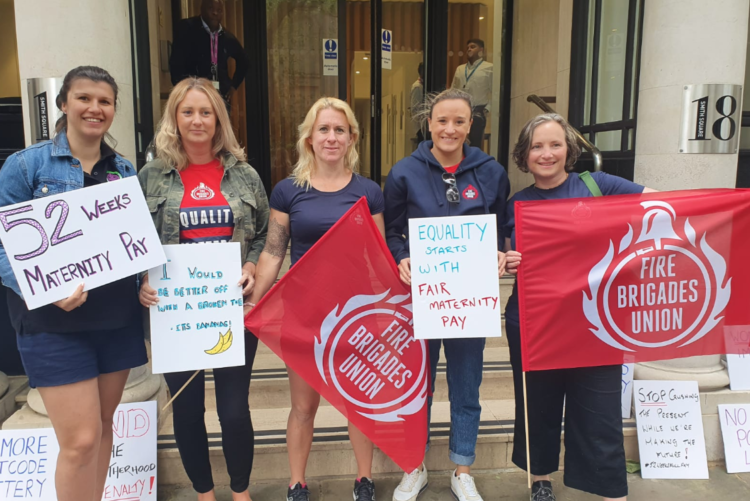Firefighters are calling for 12 months of fully paid maternity leave in a letter to the Local Government Association.
According to the Fire Brigades Union (FBU) National Women’s Committee, many mothers are forced to return to work when their maternity pay is halved because they cannot afford to take the remainder of their leave entitlement.
Under current rules, employees on maternity leave are paid 90% of their salaries for the first six weeks, which drops to 50% for the following 12 weeks and then to statutory maternity pay. However, many face a “postcode lottery”, since some fire and rescue services are offering better deals.
In calling for more paid leave, the FBU highlighted research that being exposed to contaminants in the line of duty could affect the health of pregnant firefighters, as well as their foetuses and babies.
Ben Selby, FBU assistant general secretary said: “We need the best possible national maternity provision to support new mothers in the fire service instead of them being punished with a pay cut. This injustice is a health issue, with firefighters facing occupational health risks for themselves, foetuses, and new-borns due to exposure to contaminants.
“Firefighters rightly expect employers to take the threat contaminants pose to mothers’ and babies’ health seriously. Employers should be doing everything in their power to ensure that the material support is there, so that nobody is forced to choose between working as a firefighter and becoming a parent. Proper maternity pay is essential for building an equal, supportive fire service which values and protects the health of pregnant staff and new parents.”
Robyn Richardson, acting secretary of the FBU National Women’s Committee added: “No-one should have to choose between protecting their salary and having a baby. Many firefighters struggle to make ends meet on half pay, forcing them to return to work far sooner than they should have to.
Firefighter maternity pay is currently a lottery depending on where you work in the country. Stress and financial pressure are the last things you need when caring for a new-born. Women have been raising the need for proper maternity provision for decades: it is vital to building a supportive, inclusive workplace. The fire service can and must do better.”
The request has now been presented to employers and a response is expected in due course.












